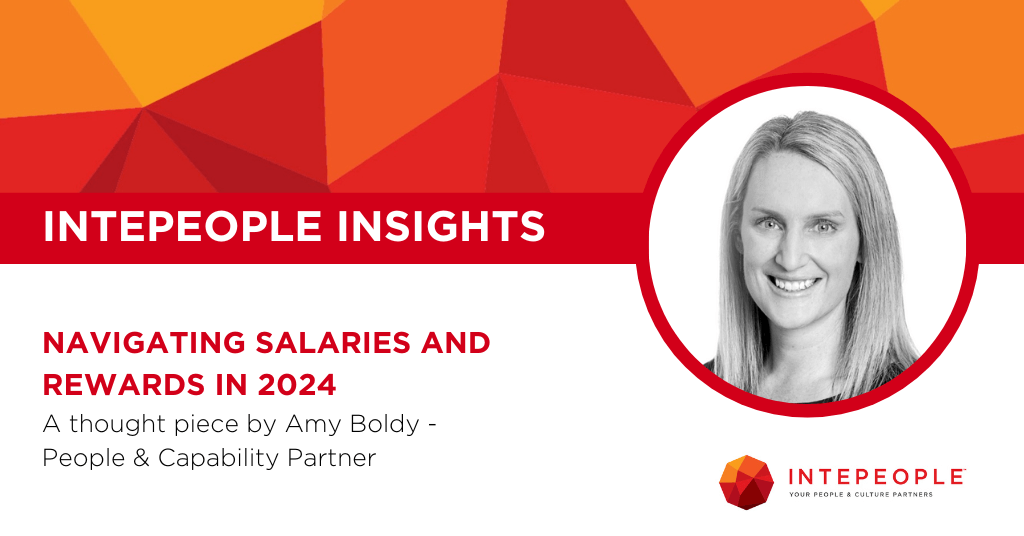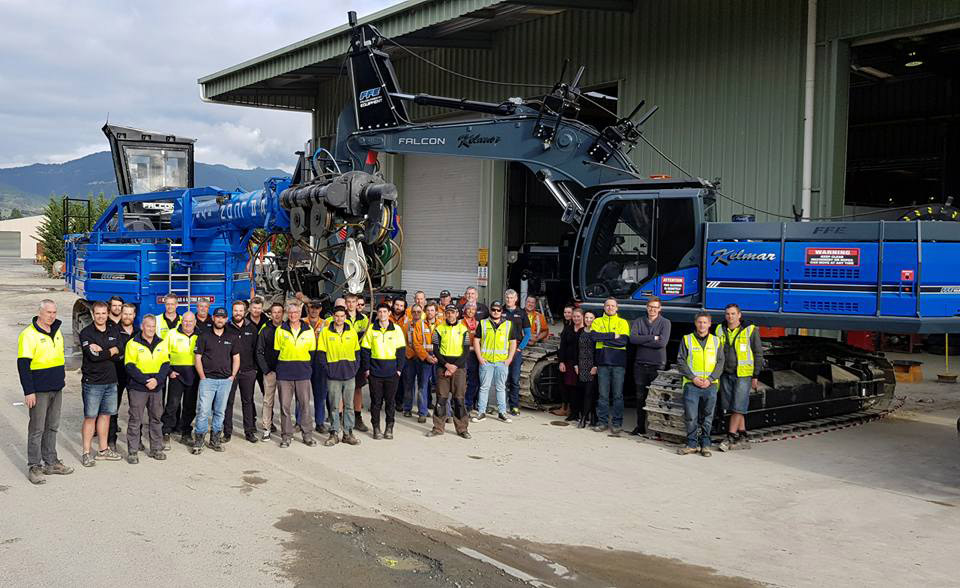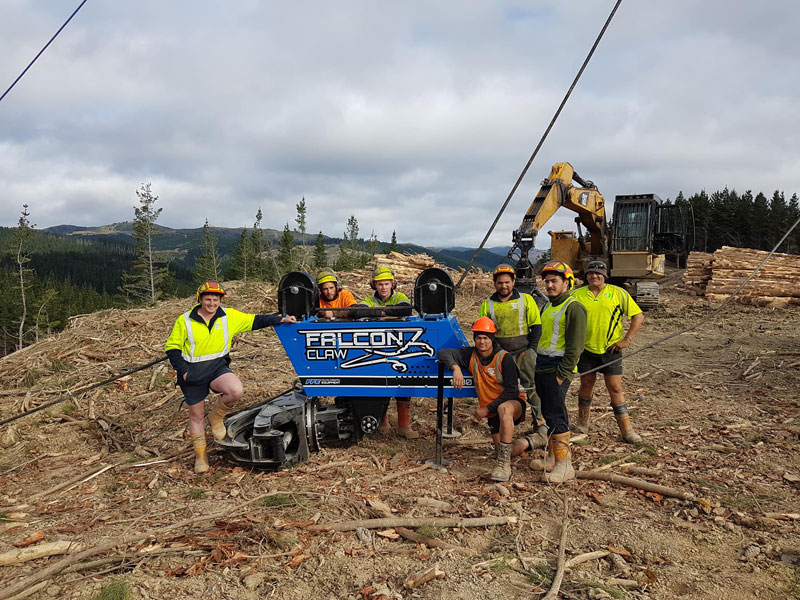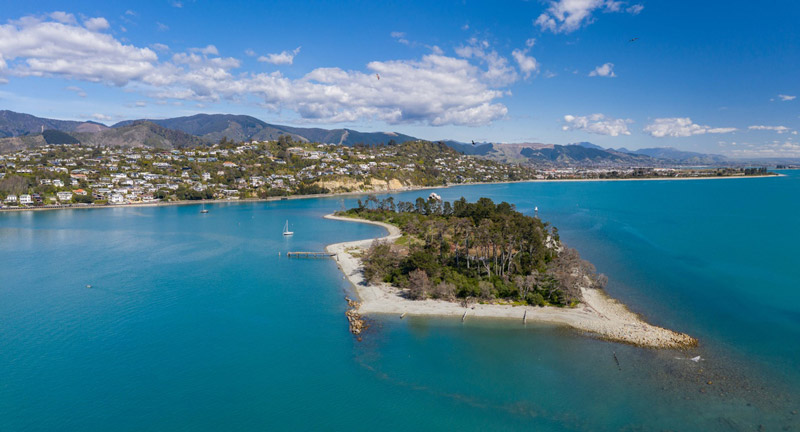
If you’d asked me this time last year what salary increases in 2024 would look like, I’d have said they needed to be in the region of 7% to retain staff in a red-hot market. What a difference a year makes!
Today we find ourselves in a very different place. The country is in a recession and the feeling, at least in Wellington, is that you’re lucky to have a job, let alone expect a pay increase. For some in the private sector business looks uncertain, and they are wondering how they will manage this year’s salary increases. So, what are the options?
This year you can’t just rely on salary survey data as the market has changed. With an oversupply of talent in some areas, you will need to think about which roles or people in your organisation are critical and require an increase in pay, and which roles or people are lower priority.
But it’s not all about pay. A good remuneration and reward strategy sets out how you will attract, reward, and retain your top talent. Now more than ever it’s important to think of remuneration in terms of a ‘total rewards strategy’, especially if the prospect of a salary increase is looking unlikely or lower than employee expectations (which is likely the case!).
Employees don’t just join an organisation for the pay. They value a great culture and work life balance. When advertising for new employees, be sure to describe your office environment and mention any additional benefits that your business offers, such as flexible working opportunities, additional leave provisions, and/or paid time out of the office to give back to the community. These can be great draw cards for attracting new recruits.
Benefits are another way to retain staff and are often viewed as more valuable to an employee than the equivalent in a salary increase when they are thinking of leaving a business. Benefits such as medical insurance give employees access to group schemes and levels of cover that they would not normally be able to afford and can provide a great retention tool.
And when it comes to recognising achievements, this doesn’t need to be expensive. Shout outs, thank you cards, and morning teas can be used to reward achievements and make your staff feel valued.
If you need help navigating this minefield, Intepeople can help. We are experts in developing remuneration strategies and frameworks that are practical, flexible, and affordable. Reach out if you’d like to know more – amy@intepeople.co.nz.
- Thought piece by Amy Boldy, People & Capability Partner at Intepeople

Nelson Tasman is a hotbed for extraordinary business stories, and at Intepeople we are privileged to support so many clever local businesses diversify and grow their teams.
One such business we work with is local forestry equipment manufacturer DC Equipment. They are leading the way globally in creating a safer and more productive steep slope logging industry, from their headquarters and manufacturing facility in Brightwater, and their second manufacturing facility in Santiago, Chile. Recently, we assisted them with the recruitment of a new position in their production team.
We chatted with Andy McKinstry, Manager, and Pedro Ivo Costa Vaz, Production Planner, at DC Equipment, about their recruitment journey with Intepeople and what it’s like to live, work and run a global business in Nelson Tasman.
A family owned business, DC Equipment is driven by a vision to bring safety and efficiency to the forest industry. Andy describes DC Equipment as an exciting place to work – a relatively young company that is expanding and growing, with a “remarkable set of products that we believe in.”
“We are not PC or a Google/Apple type company,” Andy explains. “Sometimes we swear and get passionate.”
Their team is diverse – made up of design engineers, IT professionals, hands-on mechanics and skilled fitters and welders. With more than 65 people in their Brightwater team alone, they’re regularly producing their current range and developing new products.
Employing a diverse mix of nationalities they also have a high proportion of women working in the business compared to many forestry engineering-based firms.
Andy admits it can be hard to find skilled workers in Nelson, especially with production experience, but feels they “are lucky to have a good group of people involved in the business.”
With DC Equipment’s major export markets being the USA, Canada, Australia and Chile, it’s no surprise that logistics and production planning is a significant aspect of the business.
In 2019, DC Equipment had an opportunity for a Production Planner, and with the ideal candidate for this position requiring a specific set of skills and experience, Andy engaged Intepeople to recruit for this position.
“We have used Intepeople before to fill positions and we have found them to be very thorough and they have been successful in bringing the right people to us,” explains Andy. “They have taken the hassle out of the recruiting process and have had a wider spread of people than traditional advertising.”
One of our clever Talent Partners, Odette, took on the recruitment for this role, which covered our full-service recruitment package from advertising the role and shortlisting applicants, through to initial interviews, reference checking and final face-to-face interviews at DC Equipment’s Brightwater head office.
“I found Intepeople terrific and they kept us involved throughout the process”
- Andy McKinstry, DC Equipment

While advertising the role, Odette received an application from Pedro, originally from Brazil and living in Auckland at the time.
Highly educated with a master’s degree in project management, bachelor’s in manufacturing engineering and level 4 in naval machines, Pedro also brought with him more than nine years of extensive hands-on experience in industrial/manufacturing planning and scheduling from the shipbuilding industry.
Keen to enjoy the New Zealand lifestyle, Pedro had spent two years developing his language and professional skills in preparation to successfully work here.
Discovering the Production Planner position with DC Equipment, Pedro felt it was an unmissable opportunity to reengage in a planning role and challenge himself in a new field.
Having originally moved from Brazil to Auckland in 2017, then moving to Nelson in 2019, Pedro admits his new life in Nelson took a little getting used to at first.
“My first week was a little bit difficult – new job, new city, everything was really new,” explains Pedro. “However, DC allowed me time to settle in the city, find a place to stay and all the things that need to be done when you are moving from one city to another.”
Pedro compliments DC Equipment on their comprehensive induction, and support from his colleagues who really helped him to settle in and understand the company’s processes.
“I have never lived in a small town before, but after you start knowing the community and all the different activities you can do, this feeling has gone away,” Pedro says. "Nelson made me feel welcome and has been treating me well so far."

Image credit: NelsonTasman.nz
“Nelson made me feel welcome and has been treating me well so far.”
- Pedro Ivo Costa Vaz, DC Equipment
Keen to live and work in Nelson Tasman? Join our Talent Bank here.
Looking for recruitment services in Nelson Tasman? Contact us here to discuss your needs.
This week, September 9-15, is Te Wiki o te Reo Māori - Māori Language Week - an important event on the Aotearoa calendar.
Māori Language Week creates an opportunity to bring awareness to, celebrate and learn te reo Māori, helping to revitalise and strengthen its future as a living, dynamic and rich language.
Introducing Plink…
Jeremy and Melissa Banks are the innovative duo behind Nelson-based Plink Software, a clever business operating in our region.
Plink specialise in creating beautiful kaupapa software that connects Māori to their language and their whakapapa.
Their software utilises modern technology to make it easier and more engaging for people to learn te reo Māori, and access their whakapapa online. Their popular app, Tipu, gamifies and personalises the te reo Māori learning experience. In 2017, Plink were awarded Highly Commended for Tipu in the NZ Innovation Awards in the Innovation in Maori Development category.
Tell us a little about your business journey and how you find operating a software startup in the Nelson Tasman region?
We started Plink Software about four years ago, but the genesis for it really was when our first baby was on the way, which was about fourteen years ago. We really liked the concept of raising bi-lingual tamariki and so started the journey to learn Te Reo Māori.
Jeremy taught himself from a book and his background in software made him realise that technology was particularly well suited to helping with the learning process. And so that’s where the idea for Tipu was conceived. Tipu was our first project and it’s been fantastic to be able to focus purely on kaupapa Māori software for all of our projects. The word Tipu means to grow. We chose it because we view learning Te Reo Māori as a constant and unending journey. Whether your reo is like a fledgling seedling or a seasoned tōtara, come spring time there is new growth.
We relocated Plink from Wellington, our home of 18 years, to Nelson a couple of years ago and it’s been a great move for us. We have an office in The Bridge Street Collective, which has been a fantastic environment to grow a startup business. Jeremy’s whakapapa is to Te Tauihu so it has been good to get closer to some of the mahi that’s happening here, but the biggest motivation really was raising our three daughters where they are mana whenua.
Tell us about Tipu and who is it for?
Tipu is an app that helps learn Te Reo Māori. It focuses on teaching the structures more than words or phrases, so when you learn how to say “I’m going to town”, you understand how to vary it to say “I’m going to work” or “I’m going to school”.
It’s available for free in the Apple App Store and Google Play and since we released it 3 years ago, it has taught a new word or sentence, every two and a half minutes of every hour, of every day. That’s more than half a million words. Tipu is for anyone that has an interest in learning Te Reo Māori. We have over sixty five thousand users and they come from all around the world.

What do you think organisations could be doing more of to promote revitalisation of the Māori language?
It’s all about normalisation. Air New Zealand started saying kia ora to everyone a few years ago and it raised a few eyebrows. Now it feels completely normal when they farewell you with “Mā te wā”.
Organisations need to do the same things individuals do when they are learning. Embrace making mistakes, if you’re not making mistakes, you’re not learning. Also just try and be one word or sentence better today than you were yesterday. Also make sure you take the time to look back and recognise the progress you’ve made, rather than always focusing on how far you’ve still got to go.
How can organisations like ours carry the momentum of language learning during Te Wiki o te reo Māori, beyond the week?
Turn those fun initiatives that pop up this week into everyday activities. We also need to recognise the added value that staff with Te Reo Māori provide to our organisations. When we do that learning Te Reo becomes part of so many more conversations, such as branding, communication and individual professional development.
Do you have any other projects in the pipeline that you can share with us?
We have a heap of projects on the go. It’s a really exciting time to be in Māori tech, there are so many fantastic initiatives popping up. We are currently working with schools all over Aotearoa to get Tipu in the hands of tamariki to help with their Te Reo Māori journey, with a particular focus on schools at the top of the south in Te Tauihu o Te Waka ā Māui.
Another application we have created is our Iwi membership and whakapapa software Te Ao Hunga. Te Ao Hunga literally translates to “The Cloud of People” (it’s the same ao from the cloud that’s long and white in Aotearoa) and is a bit of a play on using cloud computing to manage our information about our people. Te Ao Hunga is about putting better tools in the hands of our Iwi organisations, but much more exciting than that, it allows us to explore how we can use technology to fill some of the gaps that exist where our traditional knowledge transfer processes have broken down. Thanks to Te Ao Hunga, our cousins in Australia, who are finding it increasingly difficult to connect with their Māoritanga, can login to a safe and protected space to learn their whakapapa.
We are also getting into podcasting which is lots of fun. We would love to see a lot more Te Reo Māori podcasts and so we’ve been working with Che Wilson, who is a language expert amongst a multitude of other skills. Che has been broadcasting very short videos on Facebook for some time now, exploring different Te Reo Māori words. So as a starting point we’ve repackaged his existing content as a podcast. It’s called Che’s Channel and it’s on Spotify and Apple Podcasts.

#cleverbusiness in #NelsonTasman